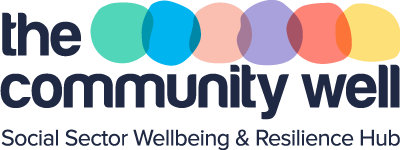RECOVERY
Support people to recover from a mental health condition by providing a positive and inclusive return to work experience.
What is Recovery?
Recovery involves returning to an optimal state of personal, social and emotional wellbeing as defined by each individual. This includes resting, healing and improving. There are different types of recovery; from the natural cycle of busy times that need time to recover from, to the type of recovery when there has been a crisis. They are both important. If we allow recovery from stressful times, we will have more resilience to face crises
Why does this matter?
Our physiology is built to cope with stress, and recovery is a critical part of healthy functioning. A lack of awareness of how to support recovery undermines this vital cycle and can hinder and at worse, stand in the way of a person making a good recovery.
What does this look like when it's managed well?
It looks like managers being close enough to their teams and themselves to see cycles of stress and proactively provide for recovery time such as time off or flexible hours. Recovery is also about supporting people after they have had a crisis or absence. Recovery is a continuum and is not black and white. It’s done well when leaders support their workers’ recovery, which might include an inclusive return to work experience, adjustments or organisational changes to accommodate new needs. It’s continuous learning and understanding to reduce the factors that lead to the need for recovery from crisis.
What does this look like when it's not managed well?
Leaders aren’t attuned to cycles of stress and therefore don’t cater for recovery, and if crises arise, there is little positive support to plan returning to work. Instead there could be pressure, or worse, exclusion, discrimination or stigmatising.
RECOVERY AND RETURNING-TO-WORK
Ways to use this module
This module comprises a selection of resources to support recovery and returning to work after a physical or mental health related injury.
- Watch the video as part of self care and recovery.
- Use the quick reference guide to foster a supportive environment for people returning to work.
- Check out the webinar on how to support someone with a mental health condition to remain at work.



